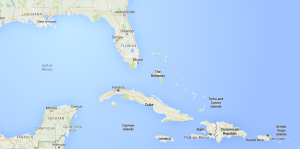
Although Haiti and the Dominican Republic exist together on the Caribbean island of Hispaniola, the two are only close in a geographical sense.
Violent outbreaks, forced deportation and discrimination are only some of the issues occurring between Haiti and the Dominican Republic right now.
Due to the Dominican Republic’s ongoing efforts to repatriate Haitian residents, more than 200,000 Haitians are now stateless.
Historically, Haiti and the Dominican Republic have rarely seen eye to eye. Conflicts between the two arose all the way back in 1697 when France and Spain divided Hispaniola in two after battling for control.
Haiti then gained independence from France in 1804 and took over the Spanish Dominican side. Haiti occupied the Dominican side for 22 years and although it eventually gained its independence from Haiti, this was when the relationship began to deteriorate.
Today, the tension is largely motivated by racism.
Despite both cultures having African ancestry, Dominicans have openly discriminated against Haitians because they perceive them to be more black.
Dominicans also argue that they have a stronger European heritage than Haitians.
In 2010, when an earthquake devastated Haiti, the Dominican Republic was quick to its aid and provided food, water and rescue workers.
However, problems began after the earthquake when Haitians began to take refugee in the Dominican Republic. High court rulings state that refugees can only be granted Dominican citizenship if at least one of their parents is a legal resident.
Danielle Perez, freshman communication major at Cabrini, is from the Dominican Republic.
Although Perez feels very passionate about standing behind her country, she does not support what they are doing.
“Being Dominican myself I love my country and I stand by it but I do not condone what they are doing,” Perez said.
Perez said that many Dominicans are characterizing the conflicts as classism. However, she feels that the events are driven much more from racism and discrimination.
On Oct. 28, Cabrini College held a discussion board that students could attend to talk about the conflicts going on between Haiti and the Dominican Republic.
Perez felt this was a very beneficial event for students and one that could really help to spread awareness about what is going on between these two countries.
“I absolutely believe this event will help spread awareness around campus,” said Perez. “I believe this is an issue everyone should be paying attention to, not just people from Haiti or the Dominican Republic. It is an issue that has to deal with injustices towards humans and therefore it should be an important issue to everyone.”



Dear Mr. Stein:
Incredible! You managed to write a very succinct and brief essay that couldn’t have contained more gross inaccuracies if you would had deliberated tried!.
Your glaring ignorance (innocent I hope!) of Haiti’s status, as a failed state, occupied by the United Nations peacekeeping force, and the highest number of NGO´s absolute and per capita on the planet, somewhat lays the blame of Haiti’s centuries of disorder, internecine wars, corruption, violence and ignorance on its neighbor the Dominican Republic and not on Haiti´s proper.
The first step to solve a problem, is to recognize there IS a problem. Haiti’s plight cannot be solved ascribing it to the back of the D. R.; The D. R. has its own and grave problems.
If we keep treating haitians as wayward, incapable people of solving their own problems, necessitating outside help to manage, even the most basic and simple of circumstances, we would be perpetuating a very subtle but real form of racism -the one that says that men of color cannot manage their own destinies or affairs, or a Rudyard Kipling distorted humanitarianism.
Please inform yourself better, before laying the blame of one country on other.
Respectfully yours,
Antonio L. from D. R.